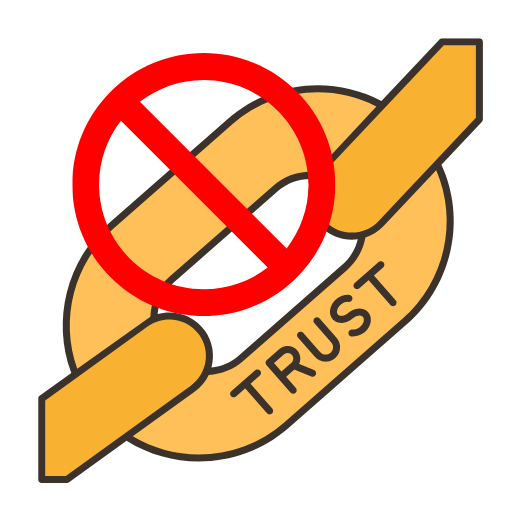
Some managers tend to micromanage because they don’t know how to delegate, how to give clear instructions or coach effectively. They try to control everything, but that doesn’t make them a bad person — just a poor manager.
This article outlines the Do’s and Don’ts to help you deal with them.
By Ziad Roumy
Practical Psychology Tips ✨
🔻 See book suggestions related to this topic 🔻
What is micromanagement?
Micromanagement is when managers control their employees’ work and decisions more than necessary. It can lower confidence and feeling of independence, and significantly harms creativity.
In the worst cases, it can lead to employees quitting or suffering from long-term stress, anxiety, and depression.

Are you being micromanaged?
Here are the top signs that you are being micromanaged at work:
- Constant Oversight: Your daily work is closely monitored, with your manager frequently checking in on progress, even for small tasks. This might involve frequent requests for updates, excessive meetings, or an overemphasis on reporting.
- Lack of Autonomy: you’re given little to no freedom in how to complete your tasks. The manager dictates not only what needs to be done but also how it should be done, leaving no room for creativity or personal input.
- Over-Detailed Instructions: Your manager provides excessively detailed instructions, leaving no room for you to make decisions or solve problems on your own.
- Frequent Revisions: Your manager constantly requests changes, edits, revisions to your work, often focusing on minor details rather than the overall quality or outcome.
- Overemphasis on Reporting: You are required to provide frequent, detailed reports on your activities, progress, and outcomes, often spending more time reporting than actually working on tasks.
- Increased Stress Levels: You constantly feel stressed, anxious, or overwhelmed due to the constant scrutiny and lack of trust from your manager. This can lead to burnout and decreased job satisfaction.
Why some managers micromanage?
And how to deal with them?
Here are the top reasons behind this behavior, along with do’s and don’ts on how to handle them.

Managers with this fear often tie their team’s success directly to their own. If the team fails, they feel they’ve failed too. This anxiety pushes them to control every detail to avoid mistakes, driven by worries about job loss, reputation damage, or missed opportunities.
DO’S:
✅ Do Reassure Them: Highlight your progress and successes to ease their fears and show that the team is on track.
✅ Do Focus on Solutions: When issues arise, quickly present solutions to demonstrate that problems are under control.
✅ Do Align with Their Goals: Understand what’s most important to them and align your work to meet those priorities, reducing their fear of failure.
DON’TS:
❌ Don’t Focus on Mistakes: Avoid focusing too much on problems or past failures, which can heighten their anxiety.
❌ Don’t Over-promise: Be realistic about what you can achieve, so you don’t add to their fear by setting up potential failures.
❌ Don’t Wait for Approval on Every Step: Take initiative on tasks where you can to show you’re capable of handling responsibilities, which can help lessen their need to control every detail.
2- Lack of Trust

Managers who don’t trust their team micromanage because they fear tasks won’t be done right or on time. This often comes from past bad experiences with delegation, making them feel the need to control every detail.
DO’S:
✅ Do Build Credibility: Consistently deliver quality work on time to build your manager’s trust.
✅ Do Communicate Regularly: Keep your manager updated on your progress to reassure them.
✅ Do Clarify Expectations: Make sure you fully understand what’s expected to avoid misunderstandings.
DON’TS:
❌ Don’t Take It Personally: Understand that the lack of trust might not be about you, but about their past experiences
❌ Don’t Be Defensive: Respond professionally to feedback instead of getting defensive.
❌ Don’t Wait to Be Asked: Proactively provide updates rather than waiting for your manager to request them.
3- Insecurity

Insecure managers micromanage to hide their fears of losing authority or being seen as incompetent. They control everything to prevent their leadership from being questioned, often due to low self-esteem or past experiences of feeling undermined.
DO’S:
✅ Do Reassure Them: Show appreciation for their guidance and acknowledge their experience.
✅ Do Seek Their Input: Ask for their advice or feedback to involve them in the process.
✅ Do Highlight Your Successes: Share your successes to reinforce that they have a capable team member on their side.
DON’TS:
❌ Don’t Undermine Their Authority: Avoid actions that might make them feel threatened or unimportant.
❌ Don’t Ignore Their Concerns: Address their concerns seriously to help ease their insecurity.
❌ Don’t Overstep: Respect their boundaries and avoid making decisions without their input.
4- Lack of Management Skills

Some managers haven’t learned how to delegate or empower their team properly. This lack of skill leads them to micromanage because they’re unsure how to lead confidently and fear appearing incompetent.
DO’S:
✅ Do Take Initiative: Help by suggesting solutions or improvements when you see opportunities.
✅ Do Offer Support: Volunteer to take on tasks or responsibilities to lighten their load.
✅ Do Ask for Clear Instructions: Request specific guidance to ensure you’re meeting expectations.
DON’TS:
❌ Don’t Assume They Know: Recognize that your manager may not have all the answers or skills, and be patient.
❌ Don’t Overwhelm Them: Avoid adding pressure by bringing up too many issues at once.
❌ Don’t Wait for Direction: Step up and lead on tasks where you can to help fill the gaps.
5- Pressure from Above

Managers under heavy pressure from their bosses may micromanage to avoid mistakes that could harm their reputation. This stress causes them to control every detail to protect their job, even if it hurts team morale.
DO’S:
✅ Do Be Transparent: Keep your manager informed about your progress to reduce their stress.
✅ Do Offer Solutions: Suggest ways to meet deadlines or solve problems to ease their burden.
✅ Do Understand Their Situation: Recognize that their pressure is likely coming from above and empathize.
DON’TS:
❌ Don’t Add to Their Stress: Avoid bringing up minor issues that could overwhelm them.
❌ Don’t Take Criticism Personally: Understand that their stress might lead to harsher feedback.
❌ Don’t Push Back Unnecessarily: Try to accommodate their requests when possible to help alleviate their pressure, but do set clear
6- Poor Communication

When managers don’t communicate well, they micromanage to ensure tasks are done correctly. Instead of fixing communication issues, they control the work closely out of frustration and lack of confidence in their team’s understanding.
DO’S:
✅ Do Seek Clarity: Ask questions to ensure you fully understand their instructions and expectations.
✅ Do Summarize Agreements: After discussions, summarize key points in writing to confirm mutual understanding.
✅ Do Keep Open Channels: Regularly check in to keep the communication flowing and prevent misunderstandings.
DON’TS:
❌ Don’t Assume Understanding: Don’t assume that vague or unclear instructions mean you’re free to interpret them your way.
❌ Don’t Let Issues Fester: Address communication problems quickly before they lead to micromanagement.
❌ Don’t Ignore Their Instructions: Even if unclear, follow up for clarification rather than risking mistakes.
7- Desire to Feel Connected

As managers move up, they may feel disconnected from their team. To counter this, they might micromanage, trying to stay involved with the details and roles of their direct reports, even though it can lead to over-control.
DO’S:
✅ Do Involve Them: Regularly update them on team activities and successes to keep them in the loop.
✅ Do Share Insights: Offer information about the team’s day-to-day work to help them feel connected.
✅ Do Acknowledge Their Experience: Show respect for their insights by asking for their input on team dynamics.
DON’TS:
❌ Don’t Isolate Them: Avoid creating situations where they feel left out of important decisions.
❌ Don’t Downplay Their Concerns: Address any issues they raise seriously, showing you value their connection to the team.
❌ Don’t Resist Interaction: Be open to their involvement, even if it feels like micromanagement.
8- Need for Control

Some managers naturally feel the need to control everything due to personality traits like anxiety or being detail-oriented. Micromanagement helps them cope with the uncertainty of not being involved in every aspect of the work.
DO’S:
✅ Do Keep Them Informed: Regularly update them on your progress to help them feel more in control.
✅ Do Respect Their Process: Follow their preferred methods when possible to reduce their anxiety.
✅ Do Offer Reassurance: Show that you’re handling tasks effectively to ease their need to control everything.
DON’TS:
❌ Don’t Challenge Their Authority: Avoid actions that might make them feel they’re losing control.
❌ Don’t Be Dismissive: Acknowledge their concerns seriously, but set professional boundaries when they’re being too controlling.
❌ Don’t Resist Their Involvement: Be open to their input, as it might help them feel more secure.
9- Perfectionism

Perfectionist managers believe only they can meet their high standards, making it hard for them to delegate. They micromanage to ensure work is done perfectly, tying their self-worth to flawless results.
DO’S:
✅ Do Deliver High-Quality Work: Aim for good quality in your tasks to meet their standards, though careful not not get lost in low return details due to their perfectionism.
✅ Do Set Realistic Expectations: Communicate what is achievable within given timeframes to manage their perfectionism.
✅ Do Offer Practical Solutions: Propose practical approaches that balance perfection with efficiency.
DON’TS:
❌ Don’t Get Overwhelmed: Don’t let their perfectionism pressure you into burnout; set boundaries!
❌ Don’t Aim for Perfection: Focus on delivering high-quality work rather than trying to meet impossible standards. Remind them about the value to be achieved and not their personal views on perfectionism.
❌ Don’t Take Criticism to Heart: Understand that their feedback may be driven by their perfectionism, not your actual performance.
In Short
Micromanagers aren’t necessarily bad people; they often just lack the management skills needed to effectively lead a team. However, a smart team member who understands the reasons behind their behavior can learn how to manage the situation, build trust, and ultimately use this knowledge to advance their own career.
👇 Some good reads related to the topic 👇
Micromanagers aren’t necessarily bad people; they often just lack the management skills needed to effectively lead a team. However, a smart team member who understands the reasons behind their behavior can learn how to manage the situation, build trust, and ultimately use this knowledge to advance their own career.

Surrounded by Bad Bosses by Thomas Erikson offers insights into toxic leadership styles and practical tips that help you manage and thrive under difficult bosses. This book can boost your career, work ethics and well-being.

Managing Your Manager by Gonzague Dufour provides strategies for effectively working with different types of bosses to advance your career and increase your influence within a company.
Managing Your Manager by Gonzague Dufour provides strategies for effectively working with different types of bosses to advance your career and increase your influence within a company.

It’s Okey to Manage Your Boss offers a step-by-step guide on how to effectively manage your relationship with your boss, ensuring mutual success and improving your work environment.

If you want to thank me, subscribe to my FREE weekly Newsletter 👇